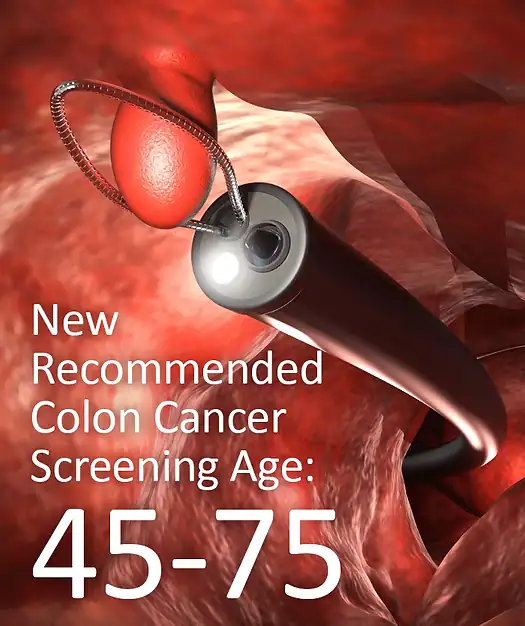
New Recommended Colon Cancer Screening Age For Adults: 45-75
The U.S. Preventive Services Task Force (USPSTF) now recommends that adults age 45 to 75 be screened for colorectal cancer.
A screening test is used to look for a disease when a person doesn’t have symptoms. When a person has symptoms, a diagnostic test is used to find out the cause of the symptoms.
Colorectal cancer almost always develops from precancerous polyps (abnormal growths) in the colon or rectum. Screening tests can find precancerous polyps, so that they can be removed before they turn into cancer. Screening tests can also find colorectal cancer early, when treatment works best.
The Task Force recommends that adults age 76 to 85 ask their provider if they should be screened and recommends several colorectal cancer screening strategies, including colonoscopy, flexible sigmoidoscopy, and CT colonography (virtual colonoscopy).
When Should I Get Screened?
Most people should begin screening for colorectal cancer soon after they turn 45, then continue getting screened at regular intervals. However, you may need to be tested earlier than 45, or more often than other people, if:
- You or a close relative have had colorectal polyps or colorectal cancer.
- You have an inflammatory bowel disease such as Crohn’s disease or ulcerative colitis.
- You have a genetic syndrome such as familial adenomatous polyposis (FAP) or hereditary non-polyposis colorectal cancer (Lynch syndrome).
If you think you are at increased risk for colorectal cancer, consult your provider:
- When to begin screening.
- Which test is right for you.
- How often to get tested.
